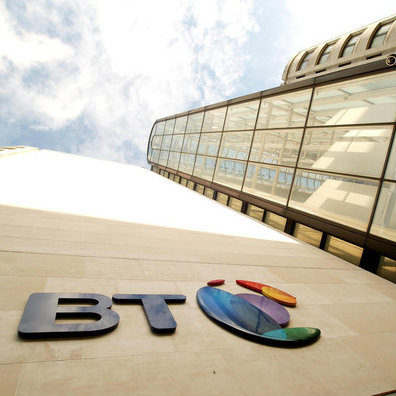Planned job cuts and restructuring could force the UK's fixed-line incumbent to increase its focus on digital transformation.

BT said it would slash 4,000 jobs including roles at its global services division and within various back-office operations as it looks to overcome an accounting scandal at its Italian business that has weighed heavily on its performance. (See Dodgy Italian Job Savages BT Earnings, Share Price Tanks.)
The cuts represent around 4% of the UK fixed-line incumbent's global workforce and are expected to save it around £300 million ($387 million) over the next two years -- although restructuring charges linked to those cuts will cost the same amount, said BT Group plc (NYSE: BT; London: BTA) in a statement.
Chief Executive Gavin Patterson and outgoing Chief Financial Officer Tony Chanmugam will also forego bonus payments they were set to receive for the 2016/17 fiscal year, ending in March 2017, and be forced to give up compensation they had previously received.
The decision will cut Patterson's bonuses by £338,398 ($436,973) and Chanmugan's by £193,412 ($249,753), according to BT documentation. Patterson's overall compensation will fall from £5.2 million ($6.8 million) in 2015/16 to about £1.35 million ($1.74 million) for 2016/17, while Chanmugan's is down from £2.8 million ($3.6 million) to just £258,000 ($332,330).
Big changes are planned at the troubled global services division, whose Italian subsidiary was charged with wrongdoing in October last year.
Luis Alvarez, the CEO of the global services business, is quitting the company, BT said today. His replacement has been named as Bas Burger, who was formerly the president of BT's Americas business and has worked in a variety of roles for BT over the last nine years.
The restructuring is aimed at producing a "simpler and leaner operating model" and will force global services to put even greater focus on the "digital transformation" that has become a priority for telcos worldwide.
The 4,000 job cuts will mainly affect "managerial" positions and "back-office areas" at global services, group functions and the operator's technology, service and operations unit (which is essentially an internal services division).
"Technology trends mean we can now be less dependent on owning physical local network assets around the world, giving us the opportunity to transform global services into a more focused digital business that can deliver using cloud-based services," said Patterson in a statement. "This is exactly what Bas will set out to achieve in his new role leading the business, and I am confident that he will drive global services forward."
The various updates come after BT revealed earlier this year that accounting misdemeanors at its Italian business would prove costlier than it had originally indicated last year.
That announcement wiped nearly a fifth off the value of BT's share price, forcing the operator to make sharp downgrades to its earnings guidance.
Figures published today were largely as BT had expected, with "underlying" revenues for the 2016/17 fiscal year falling by 0.2% and underlying EBITDA down 2.9%, to about £7.6 billion ($9.8 billion).
BT had previously expected to generate about £7.9 billion ($10.2 billion) for the recent fiscal year and is now guiding for "broadly flat" revenues in 2017/18 and EBITDA of between £7.5 billion ($9.7 billion) and £7.6 billion ($9.8 billion).
Free cash flow (FCF) has also taken a big hit, coming in at £2.7 billion ($3.5 billion) for 2016/17 against original guidance of between £3.1 billion ($4 billion) and £3.2 billion ($4.1 billion). BT expects to generate between £2.7 billion ($3.5 billion) and £2.9 billion ($3.7 billion) in FCF in the 2017/18 fiscal year.
On a reported basis, revenues were up 27% in the recent year, to about £24.1 billion ($31.1 billion), thanks to the consolidation of the EE mobile business that BT bought from Germany's Deutsche Telekom AG (NYSE: DT) and France's Orange (NYSE: FTE) in early 2016.
Profit before tax fell by 19%, to around £2.4 billion ($3.1 billion).
At the time of publication, BT's share price was trading down nearly 3% in London on today's news, at 303.05 British pence sterling (391.33 US dollar cents), and remains about 18% lower than at the start of the year.
For more fixed broadband market coverage and insights, check out our dedicated broadband content channel here on Light Reading.
It was not all doom and gloom, however, with good sales results at BT's consumer-facing operations, which have become critical to its growth prospects in the last few years.
Revenues at the BT consumer business were up 7%, to about £4.9 billion ($6.33 billion), although operating profit fell 5%, to £803 million ($1 billion), because of investment activities including heavy spending on TV sports rights.
Global services reported an 8% in increase in revenues, to about £5.5 billion ($7.1 billion), thanks to the impact of the EE takeover and favorable foreign exchange movements. On an underlying basis, revenues fell 2%, while operating profits declined by the same amount, to as little as £56 million ($72 million).
BT has warned of difficult conditions in some corporate and government markets. While the EE consolidation boosted revenues from the business and public sector division by 11%, to £4.8 billion ($6.2 billion), underlying sales were down 6%.
The large Openreach infrastructure division, which provides network services to BT's retail businesses as well as rival broadband operators, reported flat revenues of £5.1 billion ($6.6 billion) but saw operating profits drop 7%, to about £1.3 billion ($1.7 billion) -- largely on account of an increase in depreciation and amortization charges related to network investments.
— Iain Morris, 

 , News Editor, Light Reading
, News Editor, Light Reading
Read more about:
EuropeAbout the Author(s)
You May Also Like










